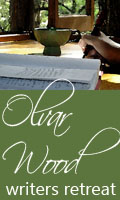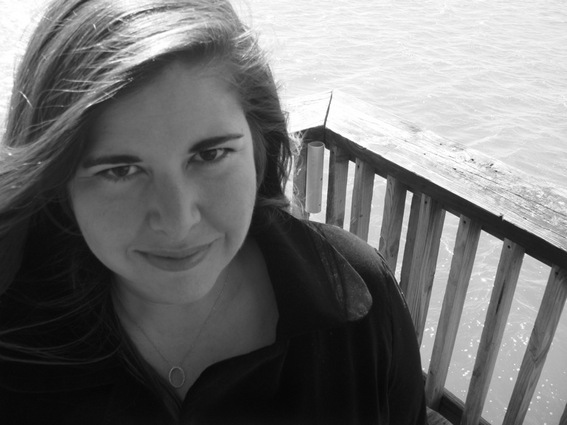
| current issue |
| archives |
| submissions |
| about us |
| contact us |
| competition |
Sponsored by:
|
Lisa Unger interviewed by Inga Simpson |
|
What is your writing process and has it changed since you have been able to write full time? My golden hours of creativity have always been in the early morning, from 5 am until about noon. I have always written best and most often in that space, even when I was working a full-time job in addition to my writing. During that time, I wrote in the nooks and crannies of my life – in the morning before work, after work, during work (!), sometimes, on my commute. The result of this is that I can work anytime, anywhere, under almost any circumstances. This skill is quite helpful, since I have a wild and wonderful four-year-old daughter who doesn’t really care about my “golden creative hours” and who also likes to rise at 5:00 am. What about your editing process? Can you step us through what you do once you have your first draft? Once I have a first draft, I generally put the book aside for a week or so. Then I go back to it from page one and work my way through again, reading, editing and changing things as I go. Once I’m as happy as I’m going to be at that point, then my agent reads, and we discuss the book. I take some time to consider her thoughts and questions. Then I go through it one more time, from page one. At that point, it’s usually in the hands of my editor at Random House. She’ll read it once all the way through, as a reader. (I love that about her!) Then, she goes back to edit. She and I go through the book over the phone, and I take her edits. She might say something like, “What if you flushed out this scene?” or “I didn’t understand why she would do this.” And then I take some time to think about her comments and questions. Then I go back through on my own from page one again. My agent and editor are both brilliant women, and I rarely disagree with their thoughts. So, it’s a surprising collaborative effort. I feel very blessed to have such talented people, helping to make me better than I have a right to be. Can you describe your office or writing space? I have struggled to find the best possible writing space for myself. Because it is so important to have a room of one’s own, isn’t it? And as a wife and mother who often puts herself last, it hasn’t been easy to create a space to retreat from the demands of life in order to work. But I think I’ve finally found it, in a little room off the master bedroom in my home. There’s a wall of family pictures, floor to ceiling bookshelves, a giant desk with my Mac on top, and a view of the tiki hut and the Intracoastal Waterway behind my house. It’s a quiet and peaceful place. When I manage to close the door, it’s perfect. Why do you write? I write because I can’t not write. There’s no choice involved at all. I am compelled by something outside or deep inside myself. If I’m not writing, I feel cranky and unmoored. Has there ever been a time when you did not or could not write? There have been times when I neglected my writing, when work and life and just being a young person in New York City got in the way of my putting words on the page. But my mind is and has always been alive with story. I feel like even in the times I was not writing, there was a lot of germination going on. But over the last ten years, while I have been a working, published writer, I have consistently produced a book a year. I don’t believe in writer’s block. I think that’s fear, pure and simple. But like all organic process, there’s an ebb and a flow. Sometimes it’s magic and some days it’s work, just like life. Who are your favourite writers and why? Truman Capote and Gabriel Garcia Marquez are lifetime favorites, each for his flawless prose and vision of the sad, frail human heart. But I have always been a literary omnivore, never discriminating by gender or genre. I have loved Jane Austen and Stephen King, Charles Dickens and Daphne DuMaurier – to name a just a few. Contemporary writers I love: Kate Atkinson, Amy Bloom, Andrew Pyper, and Jennifer Egan. And, interestingly enough, probably all for the same reasons, beautiful prose, living, breathing characters, and great storytelling. Your books seem very concerned with what lies beneath: the lies we tell and are told, and the fragility of our lives. Is this your own experience of the world and how does it drive your characters and plots? I have always been fascinated by the dark side, the underbelly. But more than anything I have a ferocious curiosity about people, why they so often say one thing and do another, why they lie, why some people are violent, and others are not. Most of my characters share this same curiosity, and it’s the need to know that drives so many of them, that fuels so many of my plots. I am student of human nature, and it’s a subject that bears endless probing. I have often found that the calm, perfect surface can mask a tumultuous depth. I like to go there, see that thing that’s real and raw. My characters want to go there, too, sometimes with terrible consequences. Lisa, I know you have been to the Melbourne and Brisbane Writers Festivals. What sense do you have of the Australian writing community and are there any obvious differences to the American writing scene? I loved my time in Australia at the Melbourne and Brisbane Writers Festivals. The festivals were so international that I feel like I spent more time with American and British writers than I did with Australian writers! I did sense a real warmth and community, though. And I do feel it’s the same in the U.S. The U.S. book market is huge and very competitive, but authors tend to reach out to and support each other. At least that’s been my experience. Now, with the social networks, the writing community in general seems more international, as well. I am able to stay connected to Australian authors like J.J. Cooper and Catherine Combe. I knew J.J. from Facebook before I got to Oz. And I met Catherine there. But now I can maintain these lovely friendships online, and look forward to seeing them again here – or back in Australia if I’m invited again. I really enjoyed the Prague scenes in Die for You, and the whole plot derives from that city, in a way. Do you work to tie plot and character to setting, or do they emerge more instinctively from the place you choose? Die For You was unique in that it was actually inspired by a place. I did a home exchange in Prague and spent five weeks there intending to just vacation, to be a tourist with my family. But the city was so magnificent, so dark and brooding, so mysterious that it just sent my brain into overdrive. I couldn’t keep the pages from coming. I thought, Prague is a city of secrets. It has a secret heart – and don’t we all? That was the place where Die For You began. But usually it’s a character’s voice I hear first, or I might see her somewhere. Like Annie Powers in Black Out -- I just kept seeing her in the bow of a boat, in flight, terrified of whatever was chasing her. And the only thing I knew about her was that she was dead wrong, that the threat was something other than she believe it to be. Florida just became the natural setting for that book, for a lot of reasons. What qualities do you think a writer needs – and do you have all of them? That’s a hard question. A lot of people ask what it takes to be published (which is different than what it takes to be a writer) and I always say it takes a little bit of talent, a little bit of luck, and sheer never-say-die tenacity. Talent is the spark. Without it, there’s no fire. But without the drive to work hard and get better every day, to hone that raw talent into real skill and true craft, you won’t get very far in this business. Then there must be the ability to bravely put your work out there, to face rejection over and over until someone wants to publish your work. But that’s about getting published. And, yes, I have all those things. But all a writer needs is a pen and paper and the burning urge to tell a story. If you have those things and you use them, you’re a writer. I have those things, too. Your books are often labelled (best selling) literary thrillers. Do you have a view on distinctions made between ‘literature’ and ‘genre’ fiction and crossing between the two? Most writers are just writing from the heart, just telling the story they want to tell. I never really think about what I am writing in terms of genre or where it belonged on the bookshelf. That’s the job of publishers and booksellers. It’s up to them to sell books to readers and so it’s important for them to classify. I know some authors are very hung up on being “literary” or not, some people choose to discriminate against “genre” writing or popular fiction. But I think great story and great writing (and terrible writing) can be found anywhere – literary novels, genre novels, movies, television. When we discriminate, we might be missing out on something wonderful. So when people ask me what I write, I usually say, “fiction.” I think it’s up to the reader to decide whether what I’ve written succeeds as a literary novel, a thriller, or a mystery. I’m just the writer! *** More Lisa Unger You can read more about Lisa Unger, and her work, on her website at www.lisaunger.com
More Author Interviews
*** |

